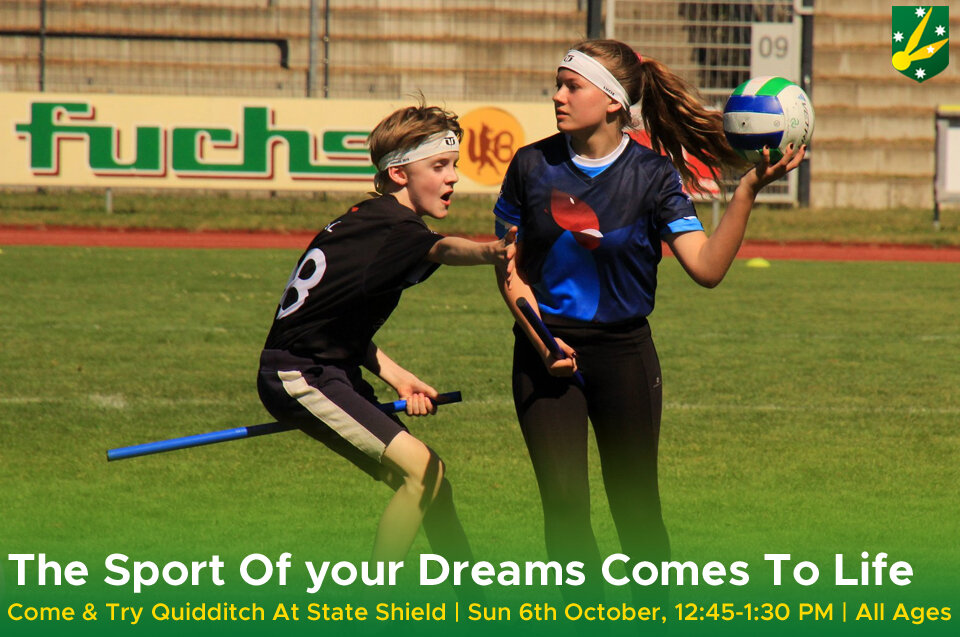The USC Dementors at Australian National Championships 2018
Given their mostly common origins and a largely returning team, excellent synergy within the Queensland's passing game and on-field communication should be expected. This has of course been the case in the past, with a strong offensive chaser line and outstanding physicality on both offence and defence keeping Queensland in games just long enough for star Dropbears seeker Spann to snatch wins out of nowhere.
Also of note is that Queensland has decided to go with a different structure for their leadership team this year, and as such, do not have an overall captain. Instead, the team has opted for chaser, beater, and speaking captain roles, held by Spann, Quinlan, and Alise Fox respectively. The overall team captain position is filled by Joshua Lindley as a playing coach.
Spann is an obvious choice with his wealth of sporting knowledge from national-level sprinting and experience at the highest levels of Australian quidditch, being the only non-Victorian and non-NSW member of the Dropbears at the 2018 World Cup. He brings a strong level of focus and authority to lead the quaffle line-up, not to mention his dominating height. Despite Quinlan's softly spoken off-field demeanor, he brings a high level of beating knowledge and skill to work with and advise any beater pair within the team.
Meanwhile, with the wealth of experience that Fox has had within the broader quidditch community and representing Queensland many times now, she brings a very calm and collected attitude to the speaking captain role that will no doubt be needed in the tough games ahead. It will be interesting to see how the Queensland team’s preparations have gone this year with debut Coach Joshua 'Smugs' Lindley who has approached the team trainings with structure and knowledge as an exercise physiologist. This preparation includes aspects of injury prevention and conditioning to ensure that the players are best prepared for the challenge ahead at State Shield.
Coming into State Shield this year, Queensland’s first targets will be the NSW Bluebottles, who have been their primary rivals in the 2016 and 2018 competitions. In both, Queensland was only able to come away with one win. Last year’s State Shield showed that the Thunderbirds were very much on par and even dominant in the chaser game, the incredible depth of NSW’s beater corps bailed out the team on defence and ensured control of the seeker game in SWIM situations. An every stronger Thunderbirds will pose a major challenge to the Bluebottles and newer Honeyeaters, and these will be match-ups that should be highly entertaining. The Thunderbirds will surely however have their sights set on the A teams, repeating their 2017 win against Victoria and breaking the tide against NSW. Against such strong and experienced teams, this will require an enormous effort from the Thunderbirds, though the trend of the competitions thus far tells us that we should be seeing some spectacular quidditch from the Queensland side this year.
Stay tuned to hear about the NSW and Victorian B teams, who will be gearing up for whatever challenge Queensland can throw at them, and make sure to come down to Sandringham this weekend or catch the tournament on our livestream to see how it plays out!
A further thanks to Josh Lindley for assistance in writing this commentary.











